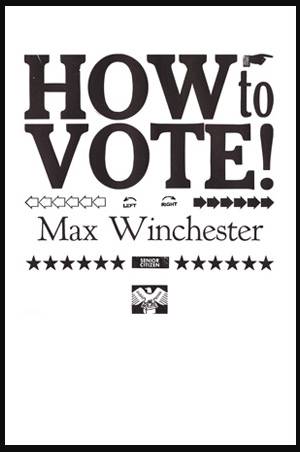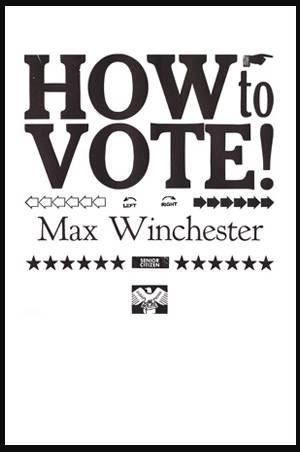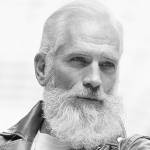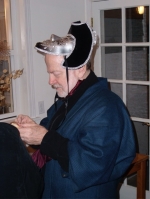“I never read a book before reviewing it. It prejudices a man so,” wrote the English critic and clergyman Sydney Smith (1771–1845), and as usual with Smith, his witty remark has further implications. Smith knows that the real prejudice that comes from reading is the increase in the accuracy of one’s judgment of the world.
“To prejudice” is generally taken to mean prematurely to affect moral conclusions; but it can also mean to form the basis for an accurate exercise of the intellect, which has to form correct judgements. (That of course depends on the accurate notion that there can be correct opinion on moral matters, and not just expressions of taste: values are matters of fact.)
The common English meaning of “prejudice” (from the Latin prae-/before and iūdicium/judgment) is a preconceived opinion that prevents new information from being correctly considered; but an equally ancient meaning is knowledge formed in advance — foresight, presaging. In other words, the danger in reading the book is that you might learn something from it; worse yet, it may be something you already know but don’t want to admit; and worse still, it may require you to do something. The danger of a good book is that it leads to knowledge and foresight — often against what “everybody knows”. It may require a correction of your attitude (in the older sense not of feelings but of posture, how you stand, ready to act — your mentality — in regard to the world at large).
 Max Winchester’s HOW TO VOTE! (the exclamation mark appears only on the cover, and not in the colophon) doesn’t tell you whom to vote for, either in the quadrennial quadrille within which the US is currently entwined, or in real democratic systems. It’s more serious than that. It tells you instead with what mindset or attitude you should approach voting. (The narrower question is answered easily: Bernie in the primary and Jill Stein of the Green party in the general election; but Winchester doesn’t bother with trivialities.). Properly attended to, Winchester’s book will change how you vote in the American 21st century.
Max Winchester’s HOW TO VOTE! (the exclamation mark appears only on the cover, and not in the colophon) doesn’t tell you whom to vote for, either in the quadrennial quadrille within which the US is currently entwined, or in real democratic systems. It’s more serious than that. It tells you instead with what mindset or attitude you should approach voting. (The narrower question is answered easily: Bernie in the primary and Jill Stein of the Green party in the general election; but Winchester doesn’t bother with trivialities.). Properly attended to, Winchester’s book will change how you vote in the American 21st century.
Here’s a snippet that the author posted (or that we the living were posthumously influenced so to do):
“[I fell for the Cold War, but I now get it:] Peace was never a political agenda, now no longer even a political word. ‘Peace’ no longer means the absence of war, it means acceptance, as in, ‘Our nation engages in routine war crimes, torture, extrajudicial internment, and extraordinary renditions, and, thanks to Zoloft, I’m at peace with that.'”
HOW TO VOTE! is in fact a book of poetry (not verse). In a different cultural world (not better or worse, just different) its fifty short chapters (most less than a page) would be a sonnet sequence (“1. VOTE AGAINST YOUR INSTINCTS 2. DON’T VOTE…”); if either Bob Dylan or Phil Ochs had lived more intensely, they could have been songs.
But it’s a book more serious than much of what is published under the name of poetry today, often limited as that is to dreams of things thought to be otherwise incommunicable. It is on the contrary a book of moral exhortation, a guide to how to live politically, more comparable to other guides to behavior like Ignatius of Loyola’s Spiritual Exercises, designed for the formation of Jesuits, on how to live.
Like all theatre, it is a performance for our benefit. It is not an election manual for this or any other presidential year; it is an act of exhortation, a non-dualistic spiritual compass, an ethical preparation. It is very difficult.
It is a vindicative (sic — not ‘vindictive’) guide to behavior, like the Divine Comedy, Maimonides’ Guide for the Perplexed, even Bunyan’s Pilgrim’s Progress. Not “vindictive,” in the sense of seeking revenge when wronged, but “vindicative” [sic], in the sense of defining the true, the good, and the beautiful against those who will not see what is common to us all.
“…Nor blear-eyed wisdom out of midnight oil.
O chestnut tree, great rooted blossomer,
Are you the leaf, the blossom or the bole?
O body swayed to music, O brightening glance,
How can we know the dancer from the dance?”
I’m not sure we can, with HOW TO VOTE. Who is this Winchester, come to wake us from our winter woes? In a section “ABOUT THE AUTHOR” we read another sonnet, escaped from the sequence:
“Max Winchester (1951-2011) was a poet whose influence can be found throughout American letters. One of the founding members of the literary arts collective Brickwall Circle, Winchester was a winner of the American Poetry Board’s Younger Poet Prize. In the 1970s, he changed his focus from poetry for the page to performance poetry, sharing stages with the likes of Lou Reed, the Sex Pistols, and Captain Beefheart. He also performed in a controversial multimedia piece by Himmler Linz Kestral Krakow written especially for him. He served as managing editor of the alternative newsmagazine Globe, and wrote the unpublished book-length poem Sphere. He devoted much of his later life to teaching poetry to prisoners in Washington State…”
I showed Winchester’s opus to a learned friend; after a few moments’ perusal he handed it back, saying, “I don’t go for that cutesy smart-ass stuff.”
Curiously enough, that’s the register one falls into, in a society where critical social comments are met with a yawn rather than a punch. From Lenny Bruce to George Carlin to the contemporary French-Cameroonian comic Dieudonné, making people laugh out loud while condemning what they assume, is the best way to get them to notice what is being said. Of course in societies like France — more intellectually repressive than the US — it’s a dangerous tactic: Dieudonné has been jailed and prosecuted on several occasions.
Winchester is beyond that. But his important spiritual exercise shouldn’t be beyond us.
About C. G. Estabrook…
C. G. Estabrook is a retired visiting professor (religious studies, sociology, history) at UIUC; he conducts the weekly hour of political discussion ’News from Neptune’ on Urbana Public TV and YouTube.









 “Max Winchester (1951-2011) was a poet whose influence can be found throughout American letters. One of the founding members of the literary arts collective Brickwall Circle, Winchester was a winner of the American Poetry Board’s Younger Poet Prize. In the 1970s, he changed his focus from poetry for the page to performance poetry, sharing stages with the likes of Lou Reed, the Sex Pistols, and Captain Beefheart. He also performed in a controversial multimedia piece by Himmler Linz Kestral Krakow written especially for him. He served as managing editor of the alternative newsmagazine Globe, and wrote the unpublished book-length poem Sphere. He devoted much of his later life to teaching poetry to prisoners in Washington State…”
“Max Winchester (1951-2011) was a poet whose influence can be found throughout American letters. One of the founding members of the literary arts collective Brickwall Circle, Winchester was a winner of the American Poetry Board’s Younger Poet Prize. In the 1970s, he changed his focus from poetry for the page to performance poetry, sharing stages with the likes of Lou Reed, the Sex Pistols, and Captain Beefheart. He also performed in a controversial multimedia piece by Himmler Linz Kestral Krakow written especially for him. He served as managing editor of the alternative newsmagazine Globe, and wrote the unpublished book-length poem Sphere. He devoted much of his later life to teaching poetry to prisoners in Washington State…” About C. G. Estabrook…
About C. G. Estabrook…